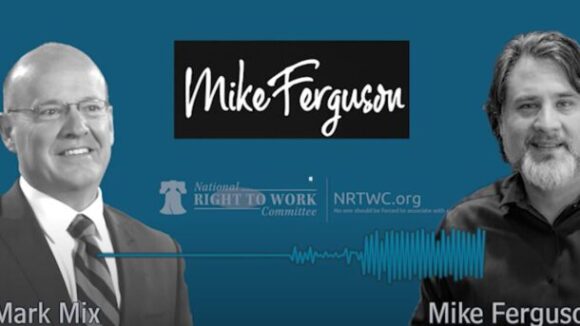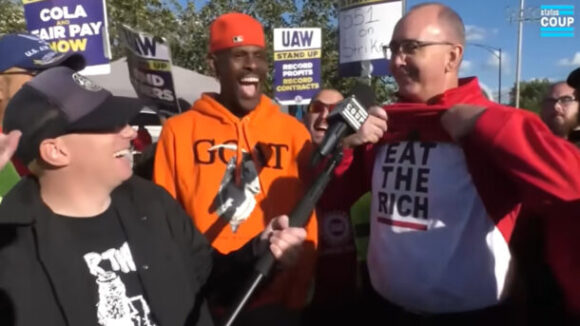Mark Mix discusses the Fallout from the UAW Strike and Big Labor $$$ on St. Louis’s Newstalk
Mark Mix Discusses the Fallout from the UAW Strike on St. Louis’s Newstalk with Mike Ferguson.
The Wall Street Journal (WSJ) usually knows bad legislation when they see it, and the police and firefighter monopoly unionization bill is no exception:
Unions keep losing membership as a share of the national workforce, which explains why organized labor’s main political focus is changing the rules to force more workers into unions. Witness a bill that Senate Democrats are pushing this week to require that hundreds of thousands of local police and firemen submit to collective bargaining.
Under current law, every state has the ability to set policies that govern its public workforce. In some states, police, firefighters and paramedics belong to unions that collectively bargain for their contracts. In others, unions representing public-security workers can bargain over pay, but not over benefits or work rules. And in some others, these workers can choose not to belong to a union.
Democrats want to change this for the entire country. A bill that passed the House last year would make the top officials at local unions the exclusive bargaining agents for public safety officers in every town or city with more than 5,000 people. They would also have the authority to bargain for everything — pay, benefits and work rules. The goal is to give labor the whip hand with local governments, and further coerce nonunion members to join the dues-paying ranks.
Sixteen states have considered legislation like this since 1996 and voted it down. The bill, pushed hardest by the International Association of Fire Fighters, would impose it nationwide, superceding all of these state laws. This arguably violates the Constitution’s 10th Amendment, which leaves to the states any powers not specifically given to the federal government — which presumably includes a state’s labor relations. It would also conflict with constitutions in states like Michigan, raising the threat of protracted legal disputes.
As “unfunded” federal mandates go, this is also a doozy. Unions that organize private companies are at least subject to market competition. If they make their employers uncompetitive, the union workers lose their jobs. Public unions have far more clout because there is no competition for government services; they are by law a monopoly. This is especially true of police and firefighters, who can do great harm to public safety if they strike. Unionization gives them enormous clout that drives up costs and eventually the tax burden.
Even Democrats admit this, which is why the bill includes a strike ban. But such prohibitions have never worked. Union officials call strikes anyway, then negotiate amnesty as a condition of ending the work-stoppage. This is what happened in 2005 when New York transit workers broke the law by going on strike and shutting down the city. They paid no price and still got their raise.
The bill’s mandates would also complicate the task of post-9/11 public security. Federal emergency plans rely on the cooperation of local “first-responders,” who need the flexibility to adapt to local problems and circumstances. Work rules negotiated according to national union standards make no sense when the safety needs of New York City are so much different than those in Fargo.
Local officials nationwide are fighting the bill, and the Bush Administration has promised a veto. But the House passed it 314-97, and it may be veto proof. That leaves the Senate, where the bill has 11 Republican co-sponsors, most of whom are up for re-election this fall. Oregon’s Gordon Smith and Minnesota’s Norm Coleman seem to believe that the unions will go easier on them in November if they throw them this concession. Right. If Republicans can’t even oppose monopoly unionization, who needs Republicans?

Mark Mix Discusses the Fallout from the UAW Strike on St. Louis’s Newstalk with Mike Ferguson.

Union boss Shawn Fain claims to oppose “corporate welfare,” but isn’t hesitant to personally benefit from it. (Credit: Status Coup News…
Last December, a majority of Mayo Clinic workers successfully voted to strip United Steelworkers (USW) union officials of power to compel dues payments